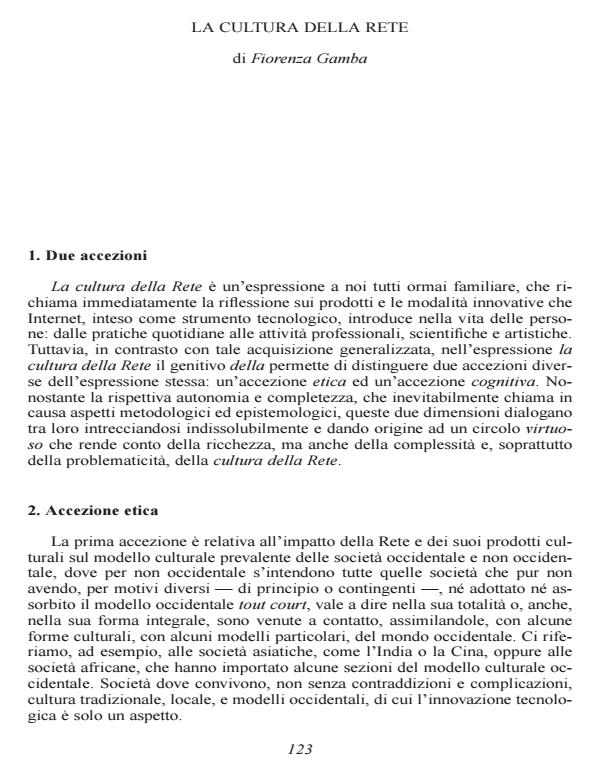La cultura della rete
Journal title SOCIOLOGIA DELLA COMUNICAZIONE
Author/s Fiorenza Gamba
Publishing Year 2005 Issue 2004/35-36
Language Italian Pages 12 P. File size 49 KB
DOI
DOI is like a bar code for intellectual property: to have more infomation
click here
Below, you can see the article first page
If you want to buy this article in PDF format, you can do it, following the instructions to buy download credits

FrancoAngeli is member of Publishers International Linking Association, Inc (PILA), a not-for-profit association which run the CrossRef service enabling links to and from online scholarly content.
In the expression Web culture there is an ethic and a cognitive meaning. In spite of their respective autonomy e complexity, these two dimensions are inseparably linked and give rise to a virtuous circle that gives account of the richness, the complexity and, above all, the problematic nature of the Web culture. The first meaning is related to the impact of the Web and its cultural products on the leading model in the western and non-western societies. In this case the spreading of the Web - and technologies involved by it - must be intended as a cultural feature that is englobed by societies, which consequently expresses and characterises them. But, in spite of the large spreading of the Web, this assimilation is not homogenous at all; considerable versions and disparities are reproducing in the digital world the same differences, inclusions and exclusions that already are in the society. In this way the problematic aspects in the access to the Web that come together in the digital divide are rising, and bring out the importance of the information society development as an opportunity to a global development. According to the second meaning, the Web culture is part of the cognitive dimension, that is of the cognitive competences that it stimulates and asks for. In this case the culture production of the Web becomes plural: culture of the image, scientific knowledge, daily knowledge. Do general features and not negligible epistemological aspects persist beyond the differences? In other words, are the cognitive dynamics of the knowledge in the Web related to the question How do we know? adequately brought out? The relationship between the two different meanings is then recurrent, a virtuous circle where ethic and cognitive aspects product together the Web culture.
Fiorenza Gamba, La cultura della rete in "SOCIOLOGIA DELLA COMUNICAZIONE " 35-36/2004, pp , DOI: